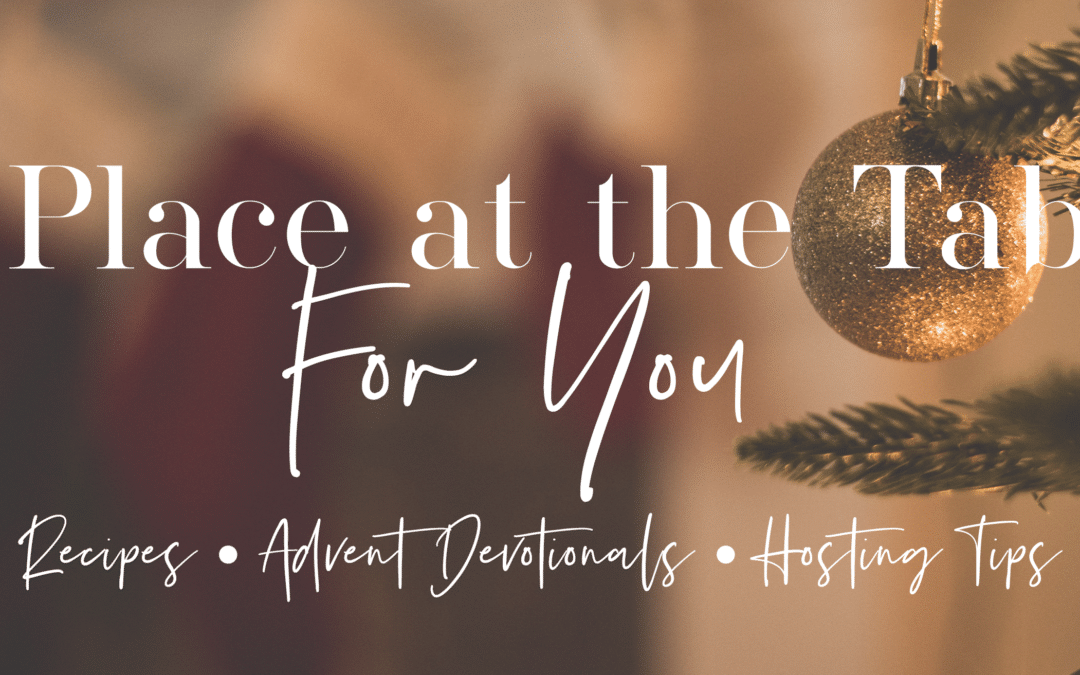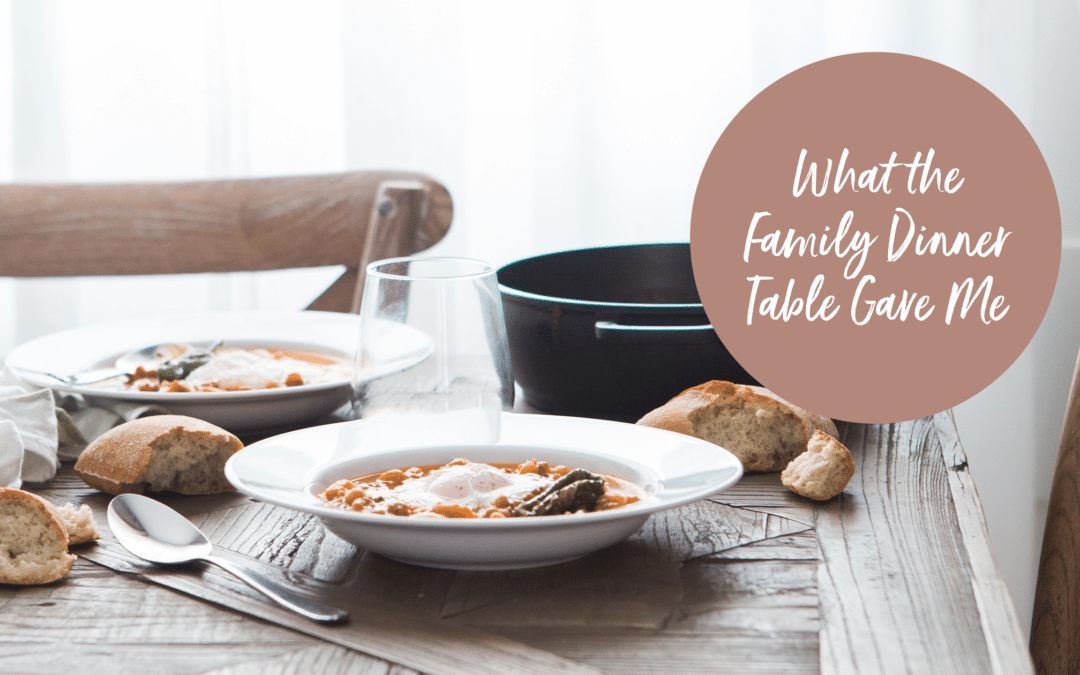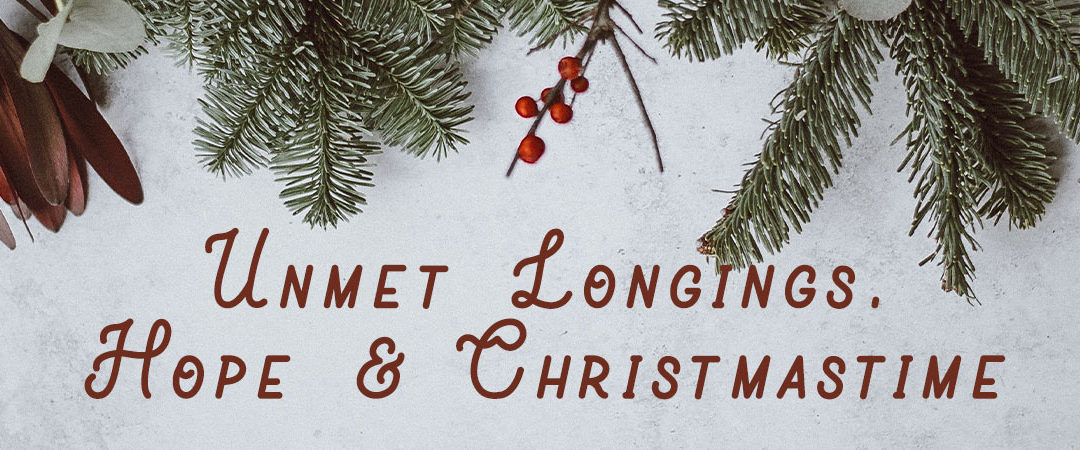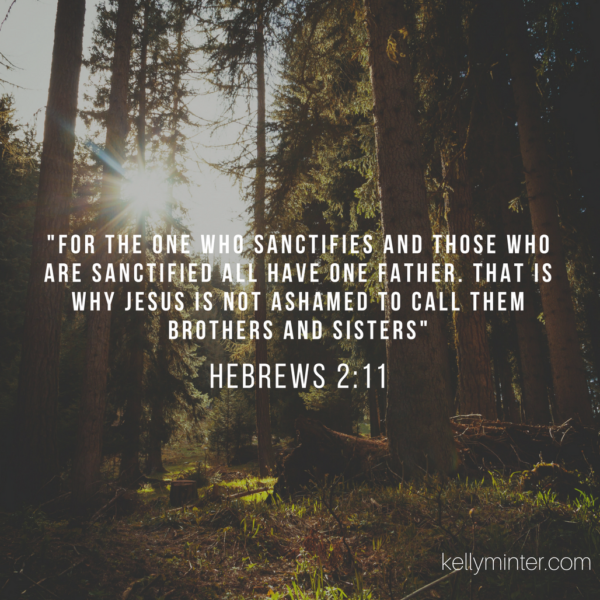Hear insight from Kelly about prioritizing new year goals and your knowing God. John 11 is where Kelly speaks to the reaction of Jesus, Martha and Mary in light of this wisdom about cultivating our relationship with God over what we do for Him.

A Place at the Table For You
Day 1: Preparing Our Hearts
As we seek to turn our hearts to the coming of our Savior, Jesus Christ, I pray these devotionals will be an encouragement to you, an anchor in a season that thrives on busyness and activity (and materialism while we’re at it.) For some of us the Christmas season is truly one of our favorite times of the year, yet we can blink and miss everything that matters about it. For others, it’s a challenging time when we’re reminded of what we don’t have or all the ways our Christmas can’t measure up to our ideal. No matter how you’re entering the season, we can all find hope and refuge by turning our hearts to the Christmas story and the life-changing message of Jesus.
We often think that Jesus’ birth begins the Christmas story, but there’s a story before the story. Luke 1 opens with a couple named Elizabeth and Zechariah. Both were from distinguished Jewish lines and both were righteous people who earnestly followed God’s commands. What’s more, Zechariah was a priest in the house of the Lord. In modern terms these are the people who can trace their ancestors back to missionaries or church-planters, who teach the kids in Sunday School, who always have a casserole ready for the neighbors. We love these kinds of people, and if we’re honest we expect that the really good guys should enter Christmas blessed in all the ways we think of as blessed.
But there was a problem. An ache. A prayer that had long gone unanswered. Luke 1:7 tells us that Elizabeth and Zechariah had no children. Elizabeth was barren, and both of them were old and past child bearing years. Not being able to bear children in first century Judaism was a deep grief not only because of the obvious void, but also because it cost you your legacy in Jewish culture. You were unable to carry on your family name and line. In many ways, it cost you your status in society and even your standing in your religious circle.
We’d expect Luke to write that because they were righteous God blessed them with a large family, filling every room in their home with children. But that’s not what the verse says. Something that’s always stood out to me about this story is the way Luke puts Zechariah and Elizabeth’s blameless walk before the Lord right up against their barrenness (Luke 1:6-7). I think Luke wanted to tell us many things here, but one is that just because you’re going through a trial doesn’t mean you’ve done anything wrong. And just because you’ve prayed a prayer that hasn’t been answered yet doesn’t mean God has abandoned or forgotten about you.
Scripture Reading and Questions for Reflection:
Read Luke 1:1-7.
-
According to verses 3-4, why did Luke write the way he did and what did he want his readers to feel confident about?
-
What two reasons does Luke give for why Zechariah and Elizabeth couldn’t have children (verse 7)?
-
Are you going through something that seems impossible for more than one reason? What are they?
-
Does it encourage you or discourage you to see that two really good people who were following the Lord also were experiencing a painful void in their lives? Explain.

Kick Off the New Year with Kelly

Finding Contentment This Christmas
This month I wanted to encourage you with how Elizabeth and Mary embraced their God-given roles and found joy leading up to the first Christmas.

When You Don’t Know, Do What You Do Know
Over the next few months I’ll be writing devotionals from the book of Esther in celebration of the release of my latest study, Esther: Daring Faith For Such A Time As This, coming November 1st. There’s so much encouragement in her story. In God’s story. When You Don’t...

Trees By Flowing Streams
It's that time of year again where we swap our vacation schedules for back-to-school supplies and routines. But it’s not all bad. I like the somewhat predictability of a schedule and the chance to start afresh with some new habits. Fall is the perfect time to jump...

The Hope of Lent
I love this time of year but not for the normal reasons. Lent, the 46 days leading up to Easter, is not a time of gift-giving or lavish partying. It’s not even a time for chocolate bunnies or Cadbury eggs—these don’t come until Easter morning. And the weather is...






















